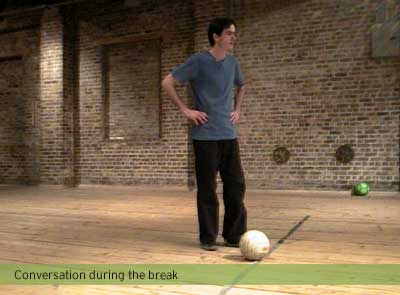Motivation

Social interaction is important for each individual as well as society, however, in modern society, we increasingly lack these interactions. Mobile phones, email, chat rooms, bulletin boards, video-conferencing, instant messengers and so on connect us to family members, work colleagues and friends, but still, they fall short in many important aspects: They were all developed within and for a business setting, aiming to increasing productivity, but not to facilitate social interaction. Video-conferencing, for example, connects people who have a reason to meet, but is not very good at encouraging casual social interaction between the participants, especially if they have not met before.
Physical Activity
In contrast, games and sports have been helpful in facilitating social introductions for thousands of years. Sports are fun, played by millions of people everywhere in the world, regardless of age, race or social status. Players come together not only for the physical exercise, but also to enjoy the social contact. This contact is valuable for maintaining bonds between friends, family members and new acquaintances, and improves one’s overall well-being and quality of life. Golf weekends, tennis tournaments, kayaking and other sport-related team-building exercises are widely used to foster bonding between co-workers and to support the creation of new teams, especially if they consist of people who have not met before.